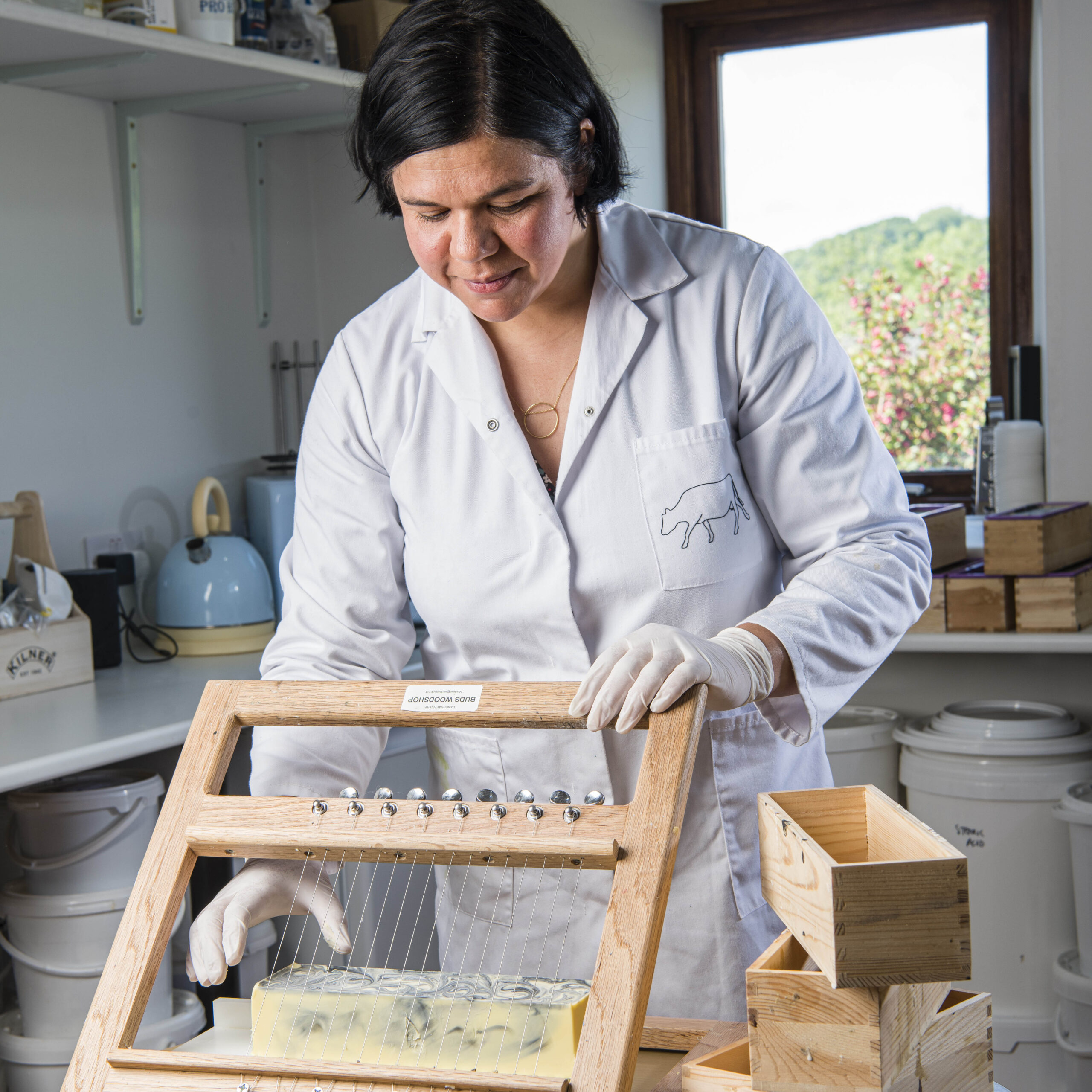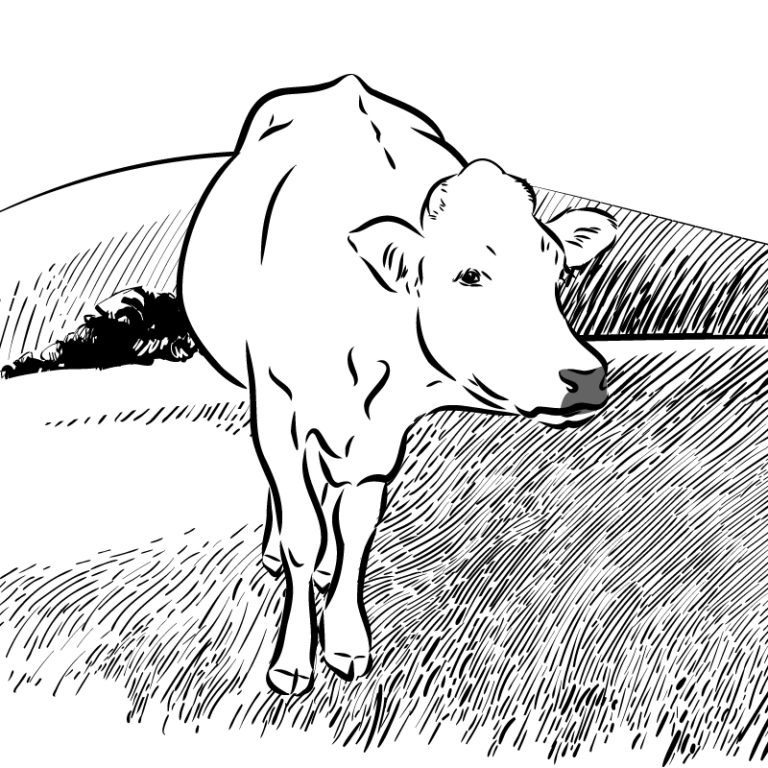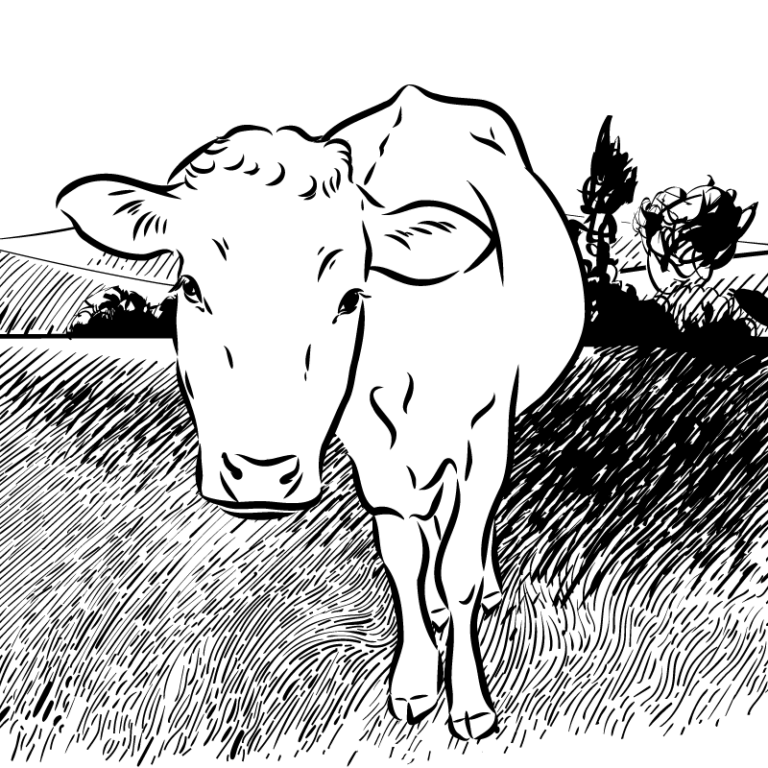
The Soap Dairy makes traditional cold process soap using Jersey milk from the farm’s dairy cow. What would traditionally be called a ‘house’ cow, she provides milk for her calf as well as the household. Nestled amongst the craggy peaks and rolling green hills of the beautiful southern Lake District, Nibthwaite Grange Farm sits proudly overlooking Coniston Water, an upland farm inspired by the local landscape in everything we do.
Most soap nowadays is made with palm oil. Palm oil is incredibly cheap and makes a hard, long-lasting bar of soap, however, the environmental damage caused by palm oil production led us to seek out alternatives. The oils we use instead are local cold pressed rapeseed oil from Eden Yard and rice bran oil – both very nourishing oils. We also use coconut oil which is an anti-bacterial cleansing oil. What was important when developing our soap recipes was that the soap was cleansing but not drying and did not irritate the skin. The combination of these three oils, as well as the creamy Jersey milk, does just that.
We use creamy Jersey milk in all our soaps. Our original Jersey cow is called Honeysuckle. Unlike in most dairies, we don’t remove the calf when it’s born. This is called a calf-at-foot system. We can then just take enough milk for our soap and she gets to rear her own calf. Everyone is happy!
Honeysuckle is now 12 years old so she has gone into retirement. She will live out her days on the farm. Our replacement milk cow is another gorgeous Jersey called Sybil.


The farm is run by John Atkinson with the help of his father Bill and his partner Maria Benjamin. The Atkinson’s have farmed Nibthwaite Grange for six generations and have lived in the surrounding area since records began six hundred years ago. The farm specialises in conservation grazing, keeping traditional breeds of livestock including some rare breeds of cattle and sheep.
Farm Diversification has become an important part of the farm business and something that Maria in particularly is passionate about. For the farm to thrive and not be reliant on farm subsidies, John and Maria felt it was important to put their energy into growing relevant small businesses that enhance the work they do on the farm. They see it as going ‘back to the future’. Small family mixed farms were the norm, and it is only in more recent years that farming has specialised and intensified, largely to its detriment.
Handmade soaps, carefully crafted in the heart of the Lake District. Using locally sourced milk, we create nourishing natural soaps which are kind to both our bodies and our planet.
Designed By : We Are Digital